![]()
![]()
![]()
Use LEFT and RIGHT arrow keys to navigate between flashcards;
Use UP and DOWN arrow keys to flip the card;
H to show hint;
A reads text to speech;
17 Cards in this Set
- Front
- Back
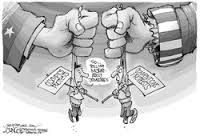
Amendment XI - Limits Lawsuits against states
|
The issue before this amendment was whether citizens of one state or foreign country had the right to sue another state in federal court. Many said yes while others agreed that such use of the federal court system to bring lawsuits against other state governments would ruin the idea of federalism. This would cause too much power from state to the national governments. |
|
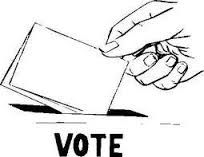
Amendment XII - Revises the procedure for the Election of a President |
Presidential elections called for each member of the Electoral College to cast two votes. Whoever had the most tallies became president while the runner-up became vice president but this system didn't work long because Jefferson and Burr finished with a tie and meant the entire election went into the House of Representatives which meant the vote could go for anyone. This amendment splits the ballot for the presidency from that of the vice-presidency and now electors cast separate ballots. |
|
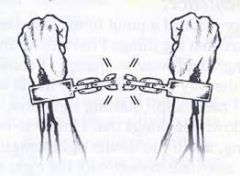
Amendment - XIII - Abolition of Slavery
|
This bans slavery throughout the U.S. and its territories. Section one says that slavery and involuntary servitude, except as punishment for a crime with duly conviction, shall exist in the United States. Section two says Congress should have the power to enforce this by appropriate legislation. |
|
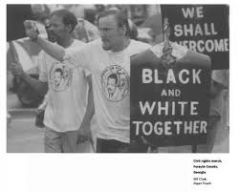
Amendment XIV - Defines Citizenship
|
This was passed to protect against the threats that white southerners would figure out how to use the powers of their state governments to re-enslave blacks by passing discriminating laws. Not only does it protect them, it protects other groups of citizens ensuring equal treatment under the law. The amendment has four crucial elements including the fact that anyone born on American soil is guaranteed full American citizenship. |
|
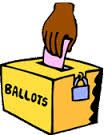
Amendment XV - Prohibits restrictions on the right to vote based on race and color |
This made sure former slaves would retain the right to vote by banning state suffrage laws that discriminated against citizens based on race. It didn't really work well for a while because southerners found ways to prevent blacks from voting using laws that didn't exactly use race as the standard for disfranchisement. Most black citizens in the South regained this right in the 1960's instead of the 1880's when they were supposed to. |
|
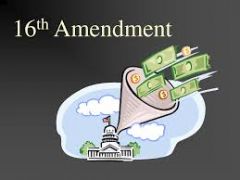
Amendment XVI - Gives Congress the Power to levy an income tax |
This means that Congress shall have the power to lay & collect taxes on income without apportionment among states and without regard to any census or enumeration. This amendment was created in order to make it possible for Congress to implement the modern income tax system. Americans still complain about this today. |
|
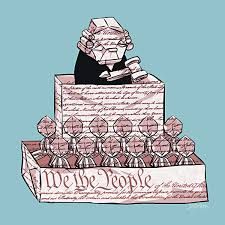
Amendment XVII - Enables voters to elect senators directly |
Originally U.S. Senators weren't elected by the people but were instead selected by certain state legislatures. That created the system of "indirect election" that led to corruption and manipulation with bribing and such. The 17th amendment ended this system and allowed for direct election of U.S. Senators by popular vote. |
|

Amendment XVIII - Prohibits making, drinking, or selling alcoholic beverages |
Many believed that alcohol was the root of evil in the American society and thought banning the production & sale of liquor would help. This only led to a black market in bootleg liquor which meant illegal booze selling. This amendment was later overturned by the passing of the 21st amendment. |
|
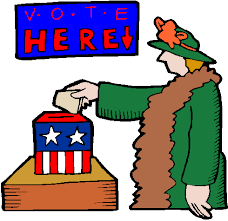
Amendment XIX - Gives women the right to vote |
This amendment granted women the right to vote. It was thought that U.S. citizens shall not be denied the right to vote because of their sex. This came nearly 150 years after Thomas Jefferson wrote the statement that "all men are created equal." |
|

Amendment XX - Changes the dates of congressional and presidential terms |
At first, federal elections would be held in November leaving the winners to be sworn into office in March. The long delay between elections and the inauguration of the winning candidates became increasingly problematic. Thus, the 20th amendment was passed so that the time period between elections was shortened to 2 months rather than 5. |
|
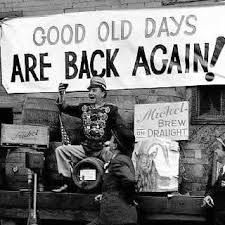
Amendment XXI - Repeals Prohibition (18th amendment) |
This was the amendment that overturned the 18th amendment because it didn't work well. This grants the states the right to regulate the use and distribution of alcohol within their borders. This took about 7 months to ratify with a time limit of 7 years. |
|
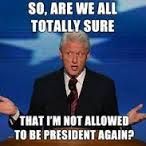
Amendment XXII - Limits the President to 2 terms |
Used to, there were no set term limits for the President of the United States. George Washington himself only had 2 which was the example set into official constitution today. Now no president can serve more that two terms which means 8 years max. |
|
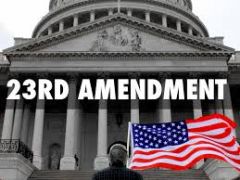
Amendment XXIII - Gives residents of Washington D.C. the right to vote |
The Electoral College grants votes only to states. Since Washington, DC isn't a state, they had a hard time getting the opportunity to vote. This amendment gave DC residents a number of presidential electors (3) equal to those of the lease populous state. |
|
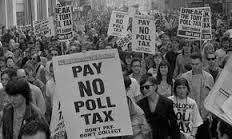
Amendment XXIV - Abolishes poll taxes |
Back then, southern states denied blacks the right to vote without poll tax which is a special fee charged for the right to vote. The 24th amendment banned such poll taxes during the civil rights movement. There are still some states that have yet to ratify this. |
|
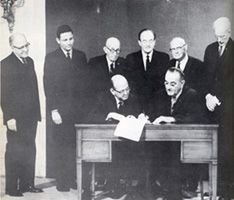
Amendment XXV - Establishes procedure for succession to the presidency |
This simply means that if the president dies, resigns, or is removed from the office, the vice president is to take over. If anything happens to the vice president, the president can choose a new one. The VP can even take over duties in the office for a while if he and the majority of the cabinet agree that the president is no longer capable of carrying out his duties. |
|
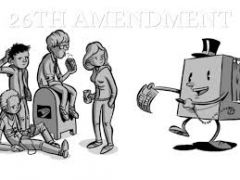
Amendment XXVI - Sets voting age at 18 years |
This amendment lowered voting ages from 21 to 18. This was because it was thought that if an 18 year old can serve and maybe die in Vietnam than he should be old enough to vote back home. This of course happened near the end of the Vietnam War. |
|

Amendment XXVII - Delays congressional pay raises until the term following the passage
|
This makes sure members of Congress can't vote to give themselves a pay raise. They can vote to raise congressional pay. They must keep in mind that such increases can only take effect for the next session of Congress. |

